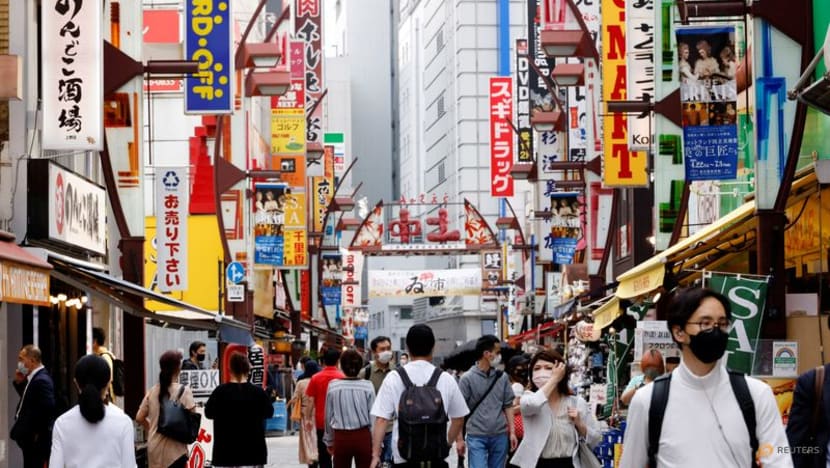Core inflation in Japan's capital perks up, yen jumps on rate hike bets

Ameyoko shopping district in Tokyo, Japan, May 20, 2022. REUTERS/Kim Kyung-Hoon/ File Photo
TOKYO :Core consumer inflation in Japan's capital accelerated in November and stayed above the central bank's 2 per cent target, data showed on Friday, as price pressures broadened, keeping alive market expectations for a near-term interest rate hike.
The yen jumped after the data, as market players stepped up bets the Bank of Japan (BOJ) would raise short-term interest rates from the current 0.25 per cent at its next policy meeting in December.
The Tokyo core consumer price index (CPI), which excludes volatile fresh food costs, rose 2.2 per cent in November from a year earlier, exceeding a median market forecast for a 2.1 per cent gain and accelerating from a 1.8 per cent increase in October.
Another index that strips away both fresh food and fuel costs, which is closely watched by the BOJ as a better gauge of demand-driven inflation, rose 1.9 per cent in November from a year earlier after a 1.8 per cent increase in October.
"Prices are rising not just for food but services, which is positive news for the BOJ in normalising policy," said Masato Koike, senior economist at Sompo Institute Plus.
The dollar briefly fell 0.9 per cent to 150.17 yen after the data, bringing its weekly loss to 3 per cent. Traders now see a 60 per cent chance the BOJ could hike rates again in December, having been undecided before the data.
TRUMP RISK LOOMS
The data for Tokyo, which is considered a leading indicator of nationwide price trends, showed households hit by rising rent, utility bills and food costs. Part of the increase in core CPI was due to a phase-out of utility subsidies from November.
But service-sector prices also rose 0.9 per cent in November from a year earlier after a 0.8 per cent gain in October, underscoring the BOJ's view that sustained wage gains are prodding firms to charge more for services.
Separate data released on Friday showed job availability edging up in October, highlighting Japan's tight labour market.
"Looking at domestic factors, there's nothing that prevents the BOJ from raising rates further," said Yoshimasa Maruyama, chief market economist at SMBC Nikko Securities, who expects the central bank to hike rates in December.
The BOJ ended negative interest rates in March and raised its short-term policy rate to 0.25 per cent in July on the view Japan was making steady progress towards durably achieving its 2 per cent inflation target.
BOJ Governor Kazuo Ueda said last week the economy was progressing towards sustained wages-driven inflation, leaving open the chance of another rate hike as early as next month.
Just over half of economists polled by Reuters expect the BOJ to raise rates again at its Dec. 18-19 meeting.
External risks, however, may delay the BOJ's rate hike timing as threats of higher tariffs by U.S. president-elect Donald Trump cloud the outlook for the export-reliant economy.
Data released on Friday showed factory output rose 3.0 per cent in October from the previous month, though manufacturers surveyed by the government expect production to fall in coming months.













